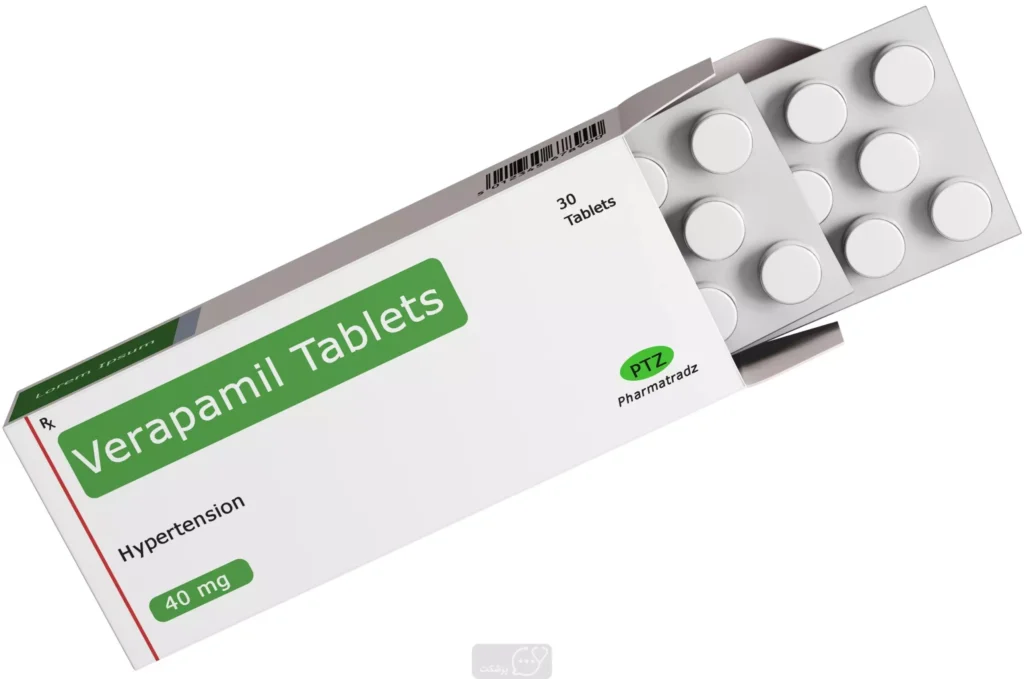✅ Generic Name:
Verapamil Hydrochloride Tablet 40 mg
✅ Prescription Status:
Prescription-only medicine (Rx) – Should be used under medical supervision.
📄 Description:
Verapamil is a calcium channel blocker (CCB) used to manage high blood pressure, certain types of arrhythmia, and angina (chest pain). It works by relaxing the blood vessels and heart muscles, improving blood flow and decreasing the heart’s workload.
Each tablet contains 40 mg of Verapamil Hydrochloride.
🌿 Nature / Class:
- Pharmacologic class: Calcium Channel Blocker (Phenylalkylamine class)
- Therapeutic class: Antihypertensive, Antianginal, Antiarrhythmic
- Mechanism of action: Inhibits calcium influx into cardiac and vascular smooth muscle cells, resulting in decreased heart contractility and vascular tone.
🎯 Purpose / Indications:
- Hypertension (high blood pressure)
- Angina pectoris (chronic stable and variant angina)
- Supraventricular arrhythmias (e.g., atrial fibrillation, atrial flutter, paroxysmal supraventricular tachycardia)
- Sometimes used in migraine prevention (off-label)
✅ Advantages:
- Effectively lowers blood pressure
- Controls heart rate in arrhythmias
- Relieves chest pain
- May reduce the frequency of migraines
- Well-established and widely used with predictable effects
📦 Common Packaging:
- Blister packs or strip packaging
- Available as:
- 40 mg tablets (common for mild to moderate hypertension or arrhythmia control)
- Also available in 80 mg, 120 mg, and sustained-release forms (for once or twice daily dosing)
- Pack sizes: 10, 15, or 30 tablets per strip or box depending on manufacturer
❄️ Storage Conditions:
- Store at room temperature (15–25°C or 59–77°F)
- Protect from light, heat, and moisture
- Keep out of reach of children
- Do not use expired tablets
👨⚕️ Patient Advice / Precautions:
- Take exactly as prescribed, with or without food
- Do not stop suddenly – may worsen angina or arrhythmia
- Avoid grapefruit juice – can increase drug levels and side effects
- Report side effects like slow heartbeat, dizziness, constipation, or swelling
- Use with caution in liver dysfunction or heart failure
- Not recommended in severe hypotension, cardiogenic shock, or advanced heart block
- Tell your doctor if you’re pregnant, planning to conceive, or breastfeeding

